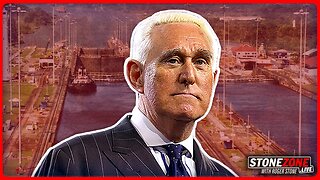Premium Only Content

Quaid E Azam Biography
Quaid-e-Azam Muhammad Ali Jinnah, also known as the Great Leader, was a prominent politician, lawyer, and the founding father of Pakistan. He played a crucial role in the creation of Pakistan and served as its first Governor-General until his death. Here is a brief biography of Quaid-e-Azam Muhammad Ali Jinnah:
Early Life:
Muhammad Ali Jinnah was born on December 25, 1876, in Karachi, which was then part of British India. He belonged to a Gujarati Muslim family that had a strong educational and political background. Jinnah received his early education in Karachi and later moved to London, where he studied law at Lincoln's Inn. He qualified as a barrister and returned to India in 1896 to pursue a career in law.
Political Career:
Jinnah started his political career in the Indian National Congress, where he initially advocated for Hindu-Muslim unity and worked towards the betterment of all Indians. However, he grew disillusioned with the Congress' approach, which he felt did not adequately represent the interests of the Muslims. Consequently, he joined the All India Muslim League in 1913 and became one of its prominent leaders.
Demand for Pakistan:
Jinnah firmly believed in the separate identity and rights of Muslims in India. He argued for the creation of a separate homeland for the Muslims where they could live with freedom, dignity, and self-governance. This vision eventually led to the demand for an independent nation called Pakistan. Jinnah's leadership and persuasive skills were instrumental in gaining widespread support for the idea of Pakistan.
Partition of India and Creation of Pakistan:
As the leader of the Muslim League, Jinnah played a pivotal role in negotiations with the British and the Indian National Congress for the partition of India. The negotiations resulted in the creation of the independent states of India and Pakistan on August 14, 1947. Jinnah became the Governor-General of Pakistan, and he worked tirelessly to establish the new nation and ensure the rights and well-being of its citizens.
Governor-General of Pakistan:
Jinnah faced numerous challenges as the Governor-General of Pakistan. He worked towards consolidating the diverse regions of Pakistan and creating a sense of national identity. Jinnah advocated for constitutional reforms, human rights, and social justice. He delivered his famous speech on August 11, 1947, outlining his vision for Pakistan as a democratic and inclusive state where all citizens, regardless of religion or ethnicity, would be equal.
Death and Legacy:
Unfortunately, Jinnah's health deteriorated rapidly after the creation of Pakistan. He was diagnosed with tuberculosis and passed away on September 11, 1948, at the age of 71. His death was a significant loss for the newly formed nation.
Quaid-e-Azam Muhammad Ali Jinnah is revered as a national hero and a symbol of unity and struggle for the people of Pakistan. His vision, leadership, and determination played a vital role in the creation of an independent homeland for the Muslims of the Indian subcontinent. Jinnah's principles of democracy, constitutionalism, and equal rights continue to guide Pakistan's development and serve as a source of inspiration for generations to come.
-
 2:05:07
2:05:07
Darkhorse Podcast
1 day agoWhy Trump Wants Greenland: The 257th Evolutionary Lens with Bret Weinstein and Heather Heying
303K592 -
 8:50:58
8:50:58
Right Side Broadcasting Network
1 day ago🎅 LIVE: Tracking Santa on Christmas Eve 2024 NORAD Santa Tracker 🎅
393K59 -
 2:48
2:48
Steven Crowder
1 day agoCROWDER CLASSICS: What’s This? | Nightmare Before Kwanzaa (Nightmare Before Christmas Parody)
349K13 -
 33:49
33:49
Quite Frankly
1 day agoThe Christmas Eve Midnight Telethon
139K23 -
 2:12:46
2:12:46
Price of Reason
1 day agoAmber Heard BACKS Blake Lively Lawsuit Against Justin Baldoni! Is Disney CEO Bob Iger in TROUBLE?
85.9K26 -
 1:01:17
1:01:17
The StoneZONE with Roger Stone
1 day agoChristmas Edition: Why the Panama Canal is Part of the America First Agenda | The StoneZONE
154K54 -
 18:12:15
18:12:15
LFA TV
1 day agoLFA TV CHRISTMAS EVE REPLAY
162K19 -
 13:32
13:32
Scammer Payback
1 day agoChanging the Scammer's Desktop Background to his Location
27.8K6 -
 4:21
4:21
BIG NEM
1 day agoNikola Tesla's Secret to Cultivating Creativity & Genius
21.9K1 -
 15:03
15:03
The Anthony Rogers Show
2 days agoAnthony Rogers - Live at Cusumano's Pizza (Upstairs)
17.3K1